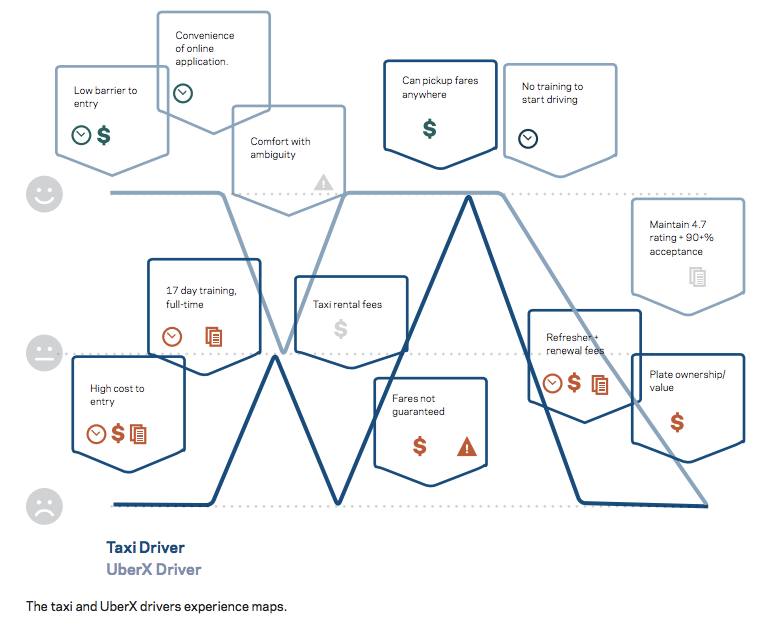As the sharing economy picks up steam, so too has the friction between disruptors and major players in the industries that they are disrupting.
“Governments should not just think of the sharing economy as something to respond to.”
As municipal governments across the country have been divided in how they handle regulation — Toronto’s overall support of Uber over neighbouring Brampton and Mississauga’s hostility, for example — the MaRS Solutions Lab has tackled the question of how to approach regulation of the sharing economy.
The Lab partnered with the City of Toronto and consulted 200 individuals and stakeholders over the past six months. Stakeholders included taxi drivers, uberX drivers, hotel managers, and Airbnb hosts, while representatives from all three levels of government, industry, sharing economy companies like Uber and Airbnb, insurance companies, and transit agencies were also consulted through a series of workshops to develop regulatory solutions that that both create public value and support innovation.
“When it comes to introducing regulation for the sharing economy, governments should not only look at regulating new entrants, but should also revisit current regulations to reduce burden for existing operators,” said Joeri van den Steenhoven, the director of MaRS Solutions Lab. “Governments should not just think of the sharing economy as something to respond to. They should think about what kind of sharing economy they want and then develop a proactive strategy that helps build it.”
On accommodation
The report recommends that a space should be rented out a maximum of 180 days per year — meaning the owner would have to live in the space more than 50 percent of the time — or it shouldn’t be considered home sharing. Governments should also improve safety inspection processes, such as increasing health and fire safety inspections, and provide clearer definitions of tax obligations for home sharing hosts.
The report suggests an education program for condo owners should be implemented to increase awareness of their condo’s bylaws, and that Toronto should also consider reviewing the Condominium Act to lower the percent of the vote required to overturn a bylaw – facilitating the possibility of model condominium regulation pilots being implemented.
On transportation
The research identifies seven key areas for regulation, including certifying drivers, training, mandating insurance coverage for all drivers, updating pricing and payment methods, increasing accessibility for taxi drivers, ensuring tax compliance, and leveraging transportation networks to access data for policy making. The report notes that in both the existing and new models, most of the risk and opportunity costs are put onto the driver.
In both the existing and new models, most of the risk and opportunity costs are put onto the driver.
In terms of licensing solutions for companies like Uber, the report suggested setting fee structures s for both transportation network companies and drivers; instead of paying a flat annual fee, uberX drivers could pay a fee for service on each ride, and creating a completely new licensing model for “transportation companies” like Uber.
For taxi drivers, the report recommended that cities should allow them an HST threshold of $30,000 as they are self-employed, and revisiting additional licensing considerations like CPR training that add limited value.
Overall, researchers said that the sharing economy shouldn’t be seen as detrimental to current industry — rather, it’s an opportunity to both embrace new industry and examine how to reduce burdens on businesses.
“The call of this report is to get ahead of the curve, to think about what kind of sharing economy we want, based on local strengths and needs. And then to develop a proactive strategy that helps build that sharing economy in a way that benefits society,” said the report, adding that it’s important for governments to create a nimble regulatory environment to encourage startups to build here. As the government copes with building its innovation strategy over the next year, the collaboration of existing businesses, government, and startups will clearly be necessary.
The full report can be found here (PDF).
Related: DMZ Panel examines rise of sharing economy and the need for regulation



